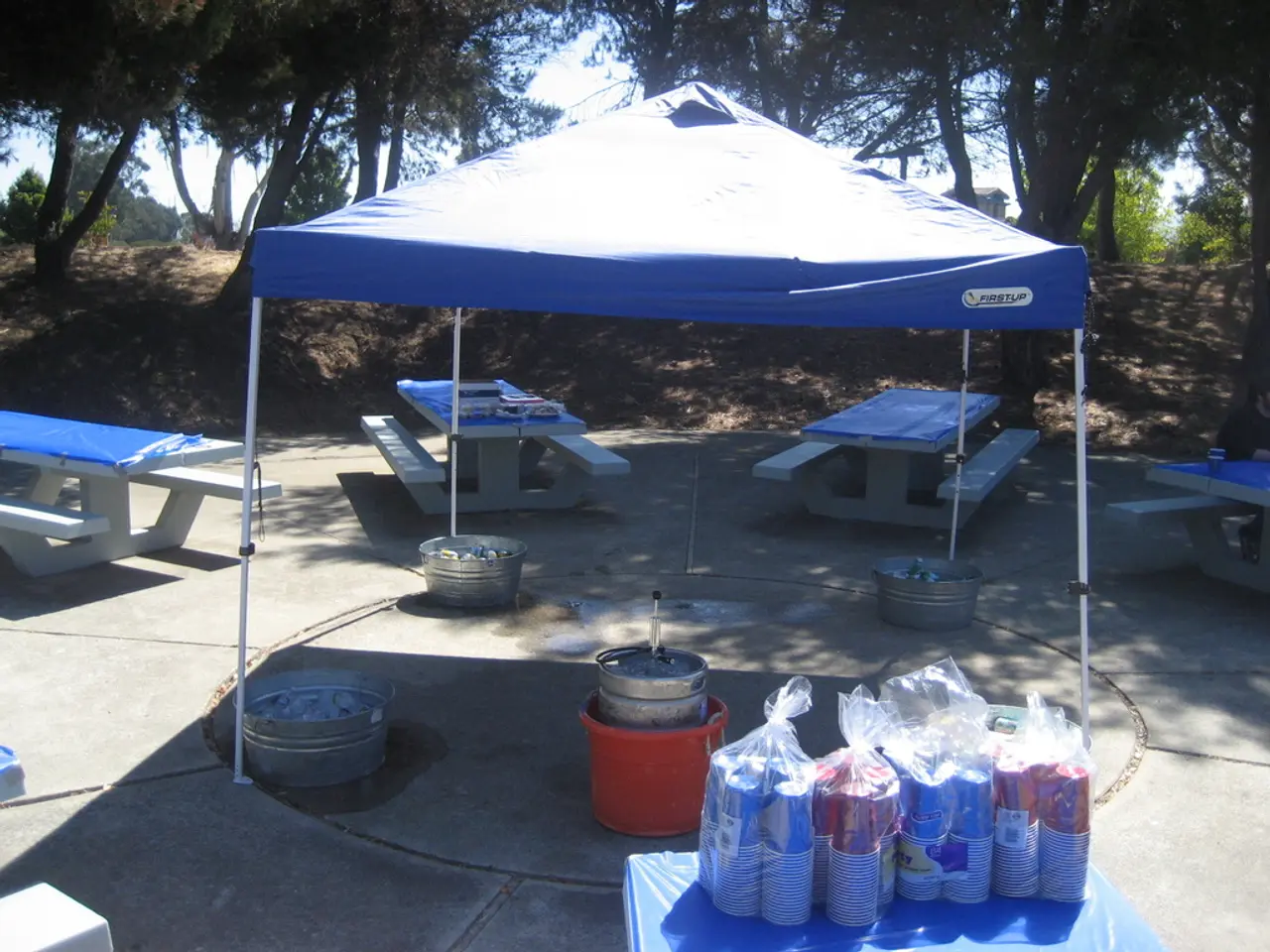Strategies for Hosting a Zero-Waste Event and Additional Sustainable Lifestyle Advice
In today's world, environmental concerns are at the forefront of many people's minds. One area where this is particularly important is events, which often generate a significant amount of waste. However, organizing a zero-waste event is not only possible but also recommended for those concerned about soil and water pollution.
Embracing Sustainable Practices
To minimize environmental impact, it's advisable to contact local suppliers and look for recommendations for vendors that sell locally produced and in-season party products. In-season ingredients and local meats that are minimally packed are the best options for a zero-waste event. Working with local farmers who specialize in sustainable farming can significantly reduce the carbon footprint of the event.
Choosing the Right Venue
The venue's location affects the event's carbon footprint; choosing a local venue minimizes travel and air travel. Eco-friendly venues can be country houses, function halls, or gardens. Contemporary disposable plate designs are suitable for formal parties, and disposable wood plates and cutlery are practical, cost-effective, and eco-friendly options for events, reducing energy consumption and carbon footprint.
Reducing Waste
Ditching disposable items by opting for reusable or compostable alternatives such as metal or wooden cutlery, cloth napkins, and reusable glassware is a key strategy for organizing a zero-waste event. Buffet-style dining can reduce wasted food by allowing guests to serve themselves, though family-style or plated meals also help portion control. Avoid single-serve packets; instead, provide condiments and other items in refillable jars for self-service.
Mindful Décor and Favors
Practice mindful décor such as using dried flowers, reusable signage, or items that can be repurposed or gifted after the event. Eco-friendly party favors include pots of succulents/herbs, bags of coffee beans, and candies packed in eco-friendly packaging. Making party favors yourself, such as homemade jams, handmade soaps, candles, or potpourris, can be a fun and cost-effective option.
Communication and Planning
Communicate your zero-waste goal with vendors, planners, and guests so everyone supports the intention behind the event. Setting up clear composting and recycling stations with signage to guide guests, and arranging for leftover food and compost to be donated or composted responsibly, are essential steps in ensuring a successful zero-waste event.
Going Paperless
Going paperless for invites is quick and easy, allowing guests to receive notifications within seconds. This is a conservationist option, as it helps reduce the amount of paper waste generated by events.
By following these tips, you can help reduce waste by emphasizing reuse, recycling, donating leftovers, and making environmentally responsible choices throughout the event planning and execution process.
- To maintain a sustainable lifestyle, consider adopting environmental-science practices in organizing events by opting for locally sourced and in-season products, choosing eco-friendly venues, and incorporating reusable or compostable alternatives for decor, cutlery, and glassware.
- In the home-and-garden section, replacing single-use items with sustainable, reusable alternatives, such as metal or wooden cutlery, cloth napkins, and reusable drinking glasses, can help reduce waste and promote a more environment-friendly environment.
- In the realm of climate-change mitigation, sustainable living embraces the concept of zero-waste events, where contributing to local communities by supporting sustainable farmers, reducing carbon footprints, and donating leftover food can create a healthier planet while still maintaining event's elegance through mindful decor and thoughtful party favors.




